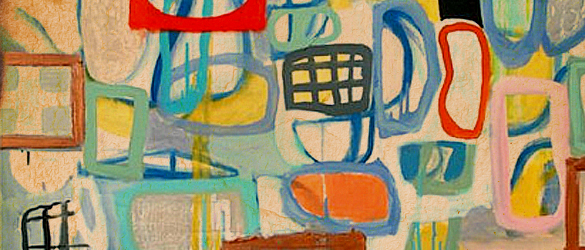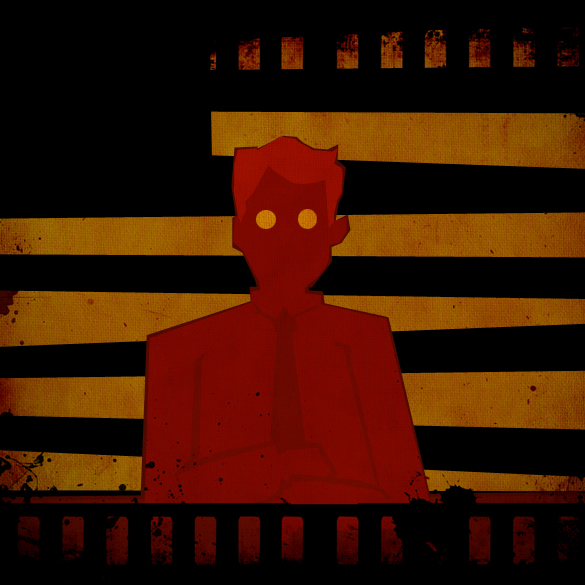Everyone gets old, everyone dies. And everybody knows, but at select times, individuals feel it. And while anyone can experience a terrible moment of mortal realization lying alone in bed at night, it’s not something that one confronts every day, and even if it is, it is never done in communal settings.
“I was pouring your coffee / and suddenly the whole house made sense,” George’s Bilgere’s speaker says in “Zero.” The poem is, fittingly, the first in The White Museum. After all, zero signifies nothing; it is a temperature that indicates an absence of heat, an absence of life. The cold morning sparks in the speaker “a certain grim finality,” and that feeling lies heavy on the remaining poems.
Like that moment of insight, Bilgere’s impact sneaks up on you. Like his cold living room, his syntax and diction are everyday, but he uses that to his strength, carefully gaining your trust before pushing you off the cliff. His style, combined with deft handling of the line, sets booby traps of meaning for the reader. Take the opening lines of “Graduates of Western Military Academy”:
One day, as this friend of my father, Paul,
was flying over Asia,
he vaporized a major city.
The first line, by itself, is utterly innocuous. It sets the tone to nonchalant, like a friend recounting an old family story over dinner. After breaking the listener in, he smiles as the attention of his listener suddenly perks up at “Asia.” Then, after delaying the main clause of the sentence for two lines, he lets fly “vaporized.” Incongruity often begets humor, but here it is used for discomfort. “Vaporized” feels pulled from a twelve year-old’s description of a video game, and in the midst of such lackadaisical diction, I wasn’t even sure the actual dropping of the atomic bomb was being referred to.
But it is, and that doubting is effective. Take him on his word or don’t, but it’s a “True story,” as he says. The poem convincingly takes a globally significant event and pastes it into a family history, and the death of hundreds of thousands of Japanese becomes the touching off point for a comparison of two American lives. The poem accomplishes this by simply moving through the facts, retaining an unaffected air.
The narrator critically never probes deeper for an answer as to why history unfolded as it did. He, unlike his father, accepts the unfairness of life. In the poem, an average student goes on to do extraordinary things; the extraordinary student goes on to do average things. It’s hard not to see how this would be unhinging to the speaker’s father, the complex student, but at least the speaker has learned from his father not to struggle with the cruelty of history. “It seems unfair, but there you are.” He instead simply passes that frustration on to the reader. The voice of the speaker is to the reader as the unfolding of history is to the father; it misdirects and points us in the wrong direction with maddening apathy. Bilgere’s casual story telling tone is the tone of history.
In other places, colloquialism allows Bilgere to twist plain observations into strange, lasting impressions. In “A Nice Place to Live,” the speaker twists the feeling of the white American everyday from warmly ambivalent to unacceptably ignorant and passive.
And the gravy train is just so smooth
that when the big ideas— the ones
you would have died for, or even killed for,
the ones that take root and flower
only in the harshest desert climes,
wither inside you and die and turn to little figs
He doesn’t shy away from making the connections, from pointing at our passivity and how it ripples through the world. The action of the poem takes place in a bar, but his speaker cannot simply go to a bar to wash down cold beer and wait for the comforting glow of the sportscast. Pushed into revelation by a news report, he instead sees he sees how “the gravy train” fuels the industrial-military complex. A weeping bearded man appears on screen, “holding the tailfin of a rocket / that killed his son.” He realizes that it is from “a rocket made by all of us.”
This is the sort of plainspoken wisdom that makes it so enjoyable to accompany Bilgere as he wanders around his cerebral white museum. It’s the self-appraisal and introspection that not everyone does, but that everyone should strive for. Dead honest directness allows Bilgere into your head, and he stays, irking you with plain-faced jokes that ring of truth.




What a perceptive and well-written review! Thank you!